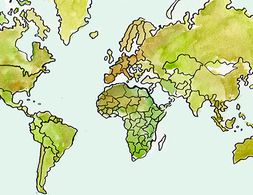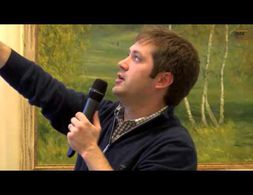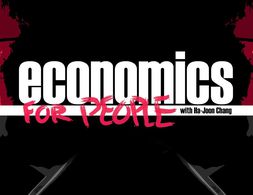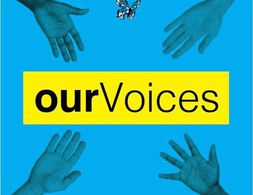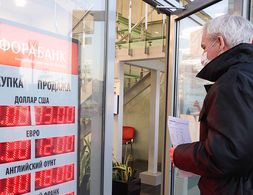✕
486 results
This course will expose students to some of the key debates that link digital transformations to economic, social, and political inequalities. Students will be familiarised with a variety of theoretical movements in development studies and internet studies: exploring thinking that frames the internet as a leveller that can bridge divides vs. exploring the internet as an infrastructure that amplifies existing inequalities.
Noneconomists often think that economists' approach to race is almost exclusively one of laissez-faire. Racism, Liberalism, and Economics argues that economists' ideas are more complicated.
Imperialism is not only about military force and political pressure applied by developed capitalist countries on less developed ones for economic gain It also has an everyday dimension Countless acts of production and consumption the current SUV boom being a prominent example draw on exploitation of resources and labour from …
The authors show how consumers, business, the Federal Reserve, and government take into account what's going on around them to make critical decisions like buying new products, building new factories, changing interest rates, or setting budget goals. The book provides a clear roadmap to understanding the whole story behind the global economy.
Why are income inequalities so large and why do they continue to increase in so many countries? What role can minimum wages play in reducing social and economic inequalities? What is a good system of wage bargaining? What constitutes a fair wage?
Though apparently siblings from the same family, New Keynesianism and Post-Keynesianism are completely different schools of economic thought. As to why and in what regard exactly, that is what this book is all about. While the former is the official label of the current mainstream in economic research and teaching (rather than neoclassic economics, which would be more apt a term), the latter tries to preserve the original thinking of John Maynard Keynes, but also additional ideas and concepts of all those building on his work.
This article investigates the set up of the CFA franc zones, its ties to French neocolonialism and its ability to further breed dependency in the former colonies.
Despite the Doha declaration of November 2001, the failure to start a new round of global trade negotiations at Seattle in December 1999 and the hostility of protesters to the trade liberalization process and growing global economic and social disparities was a wake-up call for the World Trade Organisation (WTO).
This is an introductory lecture to Stock Flow Consistent SFC modelling Antoine Godin presents this family of macroeconomic models which is based on a rigorous accounting framework and guarantees a correct and comprehensive integration of all the flows and the stocks of an economy SFC models focus especially on interactions …
A historical glimpse of how economists of the 19th century debated the usefulness of mathematics to economics
In the history of the social sciences, few individuals have exerted as much influence as has Jeremy Bentham. His attempt to become “the Newton of morals” has left a marked impression upon the methodology and form of analysis that social sciences like economics and political science have chosen as modus operandi.
After completing the module, participants should have gained a basic understanding of the economic school of thought referred to as "Modern Monetary Theory" and should be able to analyze the monetary processes at play in the economy and evaluate fiscal and monetary policy decisions from an MMT-perspective.
In this short essay, Jayati Ghosh gives an overview over the multiple ways in which the economic "fall-out" of the War in Ukraine is hitting economies and societies in the developing world.
In this class we will explore how globalization shapes and is shaped by gender norms with a particular focus on questions related to ‘work,’ mobility and well-being.
In his 2010 published book “The Enigma of Capital and the Crises of Capitalism” multi-talented US geographer, anthropologist and Marxist economist David Harvey aims to analyse the capitalist system that has shaped western society and the globalized world of today.
Green Growth has been increasingly discussed as a solution to the socio-ecological crisis. But can economic growth be sustainable at all?
The Elgar Companion to Neo-Schumpeterian Economics surveys the achievements of the most visible scholars in this area. The contributions to the Companion give both a brief survey on the various fields of neo-Schumpeterian economics as well as insights into recent research at the scientific frontiers.
This fresh and unique textbook provides students and general readers with an introduction to economics from a new and much needed perspective, characterised by its uniquely pluralist, sustainable, progressive and global approach.
Unlike traditional textbooks, Introducing a New Economics contains the key concepts of pluralism, sustainability and justice. It provides students with the central questions covered by economics including resources, work, employment, poverty, inequality, power, capital, markets, money, debt and value.
How does fiscal policy work and which dimensions have to be considered? In this short text, you can learn about the difficulty of juggling different dimensions and which optimal rules exist at the micro and macro level.
Economics has long been the domain of the ivory tower, where specialized language and opaque theorems make it inaccessible to most people. That’s a problem.
Overview page for the collection of nobel laureateas on Exploring Economics
In this podcast, Laura Basu speaks with a range of expert academics and public speakers – such as Jayati Ghosh, Yanis Varoufakis, Walden Bello, and Ashish Kothari about how the rules of the global economy are fostering the inequality and underdevelopment we see today.
Exploring Economics, an open-source e-learning platform, giving you the opportunity to discover & study a variety of economic theories, topics, and methods.
Exploring Economics, an open-access e-learning platform, giving you the opportunity to discover & study a variety of economic theories, topics, and methods.
The world is regularly shaken by crises some are bigger others are smaller in scope Local turmoil military conflicts commodity scarcity bank runs health threats the history of mankind can be written as a history of crises Three major global crises occurred in the last fifty years alone the oil …
This film looks at the role economic growth has had in bringing about this crisis, and explores alternatives to it, offering a vision of hope for the future and a better life for all within planetary boundaries.
The world has seen the emergence of a rather different system of international lender of last resort organized as a network of central bank liquidity swap lines largely limited to the core countries of the Global North In this system central banks swap their own currency for dollars which they …
The article reviews the effects that the War in Ukraine will have for the global economy.
Education policy seeks to ensure equality in access, equality within the classroom and in teaching- learning processes, and equality in outcomes. This course encourages students to assess and evaluate the extent to which these objectives are met in practice and the ways in which educational outcomes are shaped by, as well as alter, gendered social norms.
This teaching pack focuses on the practice and real-world activities of central banks. It assumes students have a grasp of basic macroeconomic concepts already, and is therefore most suitable to be used at the end of introductory macro courses, or in more advanced macro or monetary economics courses.
This self-paced free course by Perry Merhling guides you to his "Money View" approach that integrates the fields of economics and finance. The course can easily be understood by people interested people without technical economic knowledge or training as it is primarily a tool for analysis.
Gender, Development, and Globalization is the leading primer on global feminist economics and development. Lourdes Benería, a pioneer in the field of feminist economics, is joined in this second edition by Gunseli Berik and Maria Floro to update the text to reflect the major theoretical, empirical, and methodological contributions and global developments in the last decade.
We use cookies on our website. Click on Accept to help us to make Exploring Economics constantly better!







